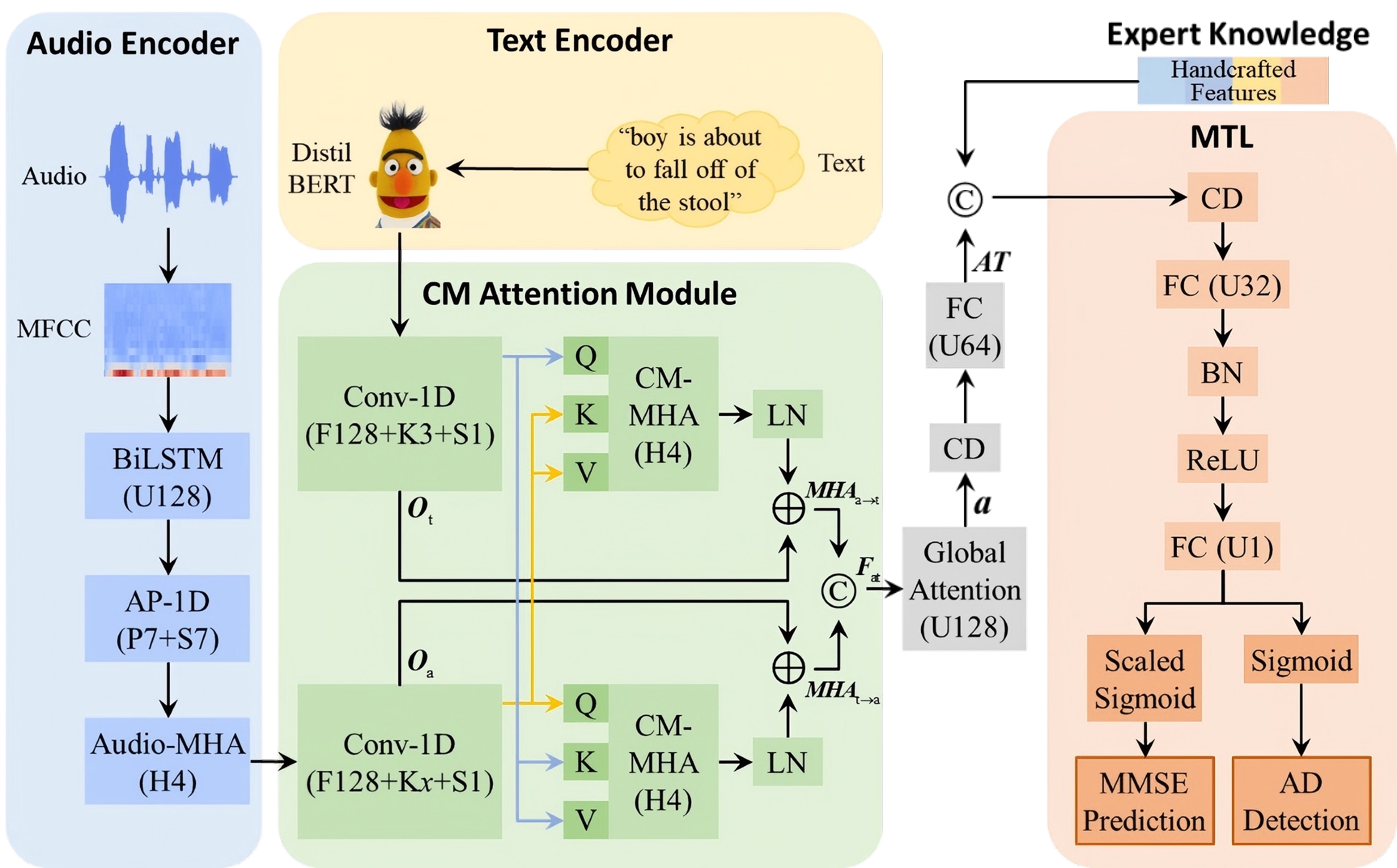
Recently, Prof. LI Hai from the Hefei Institutes of Physical Science of the Chinese Academy of Sciences, developed a novel multi-task learning framework, DEMENTIA, to improve the early detection and assessment of Alzheimer's disease (AD).
Their findings were published in IEEE Journal of Biomedical and Health Informatics.
Alzheimer' s disease is becoming more common as the population ages, and early detection is key to improving patients' lives. Language decline is one of the first signs of cognitive deterioration. While automated speech analysis offers a non-invasive, cost-effective way to detect Alzheimer' s, current methods often struggle with complexity, poor interpretability, and limited use of multiple data types, reducing accuracy and clinical application.
To address these challenges, the team developed DEMENTIA framework. It integrates speech, text, and expert knowledge with a hybrid attention mechanism, enhancing both accuracy and clinical interpretability in AD detection. By leveraging large language model technologies, the framework captures complex intra- and inter-modal interactions, improving AD detection accuracy and enabling the prediction of cognitive function scores. Additionally, comprehensive interpretability analyses showed the model’s strong clinical decision-support capabilities and robustness across different datasets.
These findings highlight the potential of speech-based tools for early AD screening and cognitive decline monitoring, offering significant scientific and societal value in tackling the challenges of an aging population.

A Multi-Task Learning Framework for AD Assessment: Hybrid Attention and Multimodal Representation (Image by YANG Lizhuang)